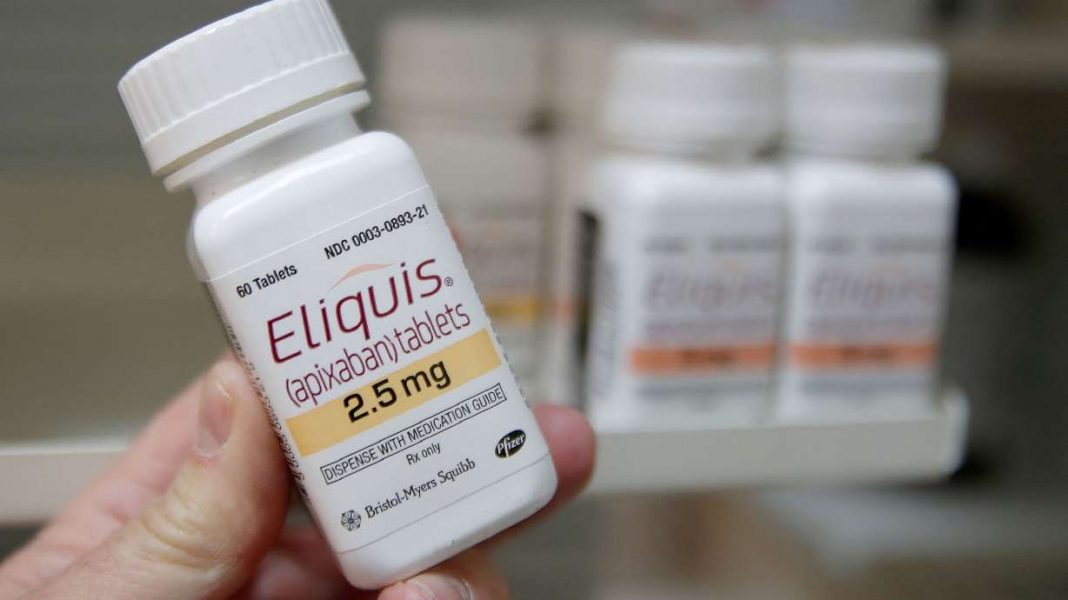WASHINGTON — Sen. Bernie Sanders is once again challenging the pharmaceutical industry, releasing a report on Tuesday that underscores the exorbitant cost of three top-selling drugs in the U.S. compared to other countries.
The price disparities are indeed eye-opening. For instance, the annual list price of Eliquis, a stroke-preventing blood thinner from Bristol Myers Squibb, is a staggering $7,100 in the U.S. However, in Japan, it’s only $940; in Canada, it’s $900; and in France, it’s a mere $650.
Similarly, Johnson & Johnson’s arthritis medication, Stelara, has an annual list price of $79,000 in the U.S. In contrast, it’s priced at $30,000 in Germany, $20,000 in Canada, and $12,000 in France.
Moreover, the annual list price of Merck’s cancer treatment, Keytruda, is $191,000 in the U.S., while in the UK, it’s $115,000; in Canada, it’s $112,000; and in Japan, it’s just $44,000.
Sen. Sanders, an independent from Vermont, released the report in anticipation of a hearing on Thursday with the CEOs of the three pharmaceutical companies before the Senate Committee on Health, Education, Labor and Pensions, which he chairs. The hearing has already sparked controversy, with Sanders threatening to issue the committee’s first subpoenas in over four decades to force the heads of Johnson & Johnson and Merck to testify. They eventually agreed to appear voluntarily late last month.
Medicare Begins Drug Price Negotiations
Medications are typically far less expensive in other countries, largely because their governments often regulate the cost. However, this price gap could start to narrow for certain drugs in the near future.
Medicare has initiated its first-ever negotiations with pharmaceutical companies over the cost of 10 high-priced drugs, including Eliquis and Stelara. While the prices charged in other countries are not considered in the negotiation process, the Biden administration, Sanders, and others have consistently highlighted this price differential as a significant issue with the U.S. drug pricing system.
During his tenure, former President Donald Trump proposed a measure that would have made Medicare pay the same price for certain costly prescription drugs as other developed nations, a concept known as a ”most-favored-nation price.” This would have enabled the U.S. to benefit from discounts negotiated by other countries.
Although the price patients pay for drugs usually depends on their insurance coverage, list prices do influence both their premiums and out-of-pocket expenses. Those who have not yet met their deductible and the uninsured may have to pay the full list price.
Massive Profits
Sanders’ report also highlighted the billions of dollars in profits these three companies earn and the tens of millions their CEOs receive in compensation. The drugmakers have made more money from their sales of these three drugs in the US than in the rest of the world combined.
The report also pointed out that Johnson & Johnson and Bristol Myers Squibb spent $17.8 billion and $12.7 billion respectively on stock buybacks, dividends, and executive compensation, compared to $14.6 billion and $9.5 billion on research and development in 2022. However, Merck spent almost double on research and development than it did on dividends and executive compensation.
Pharmaceutical companies have contended that Medicare’s price negotiations could stifle their research and development, potentially leading to fewer new medications entering the market.




Disagree – It’s unfair that Americans have to pay more for the same medications that are cheaper in Canada. #MedicareNeedsToFixThis
Agree – It’s about time Medicare addresses the exorbitant prices of medications in the US compared to Canada. Lower costs will greatly benefit American patients.
Thank you for your sharing. I am worried that I lack creative ideas. It is your article that makes me full of hope. Thank you. But, I have a question, can you help me?